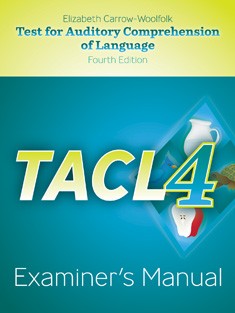

Linguistic processing abilities Cognitive abilities – Grammar (passive voice, indirect objects, etc.)ĪND on these characteristics of the student: – Acoustic information (vowels, consonants, intonation, etc.)

It is ALSO dependent upon these characteristics of the message: Two examples can illustrate how comprehension differs from identification.Įxample of a Response that Demonstrates Auditory ComprehensionĮxample of a Response that Demonstrates Auditory IdentificationĪuditory comprehension of a message is dependent upon successfully performing ALL of these auditory response tasks: The student demonstrates auditory comprehension of a message by responding to it using language that usually “references the stimulus but is unique in its content.” (Estabrooks, 2000). Generally, levels of complexity are described as the sound/phoneme level, word level, phrase/sentence level, and discourse/connected speech.Īuditory comprehension is understanding what one hears through listening. Speech perception training also requires attention to the complexity of the listening task, or the amount of acoustic information in the message. The best 10-day exercise plan at home | Very Fitness pharmatest e 300 shakira, pharrell williams and the beatles land on apple’s fitness. Rather, a child might simultaneously be developing skills in two, three, or even all four categories, but at varying levels of complexity. These listening skills do not develop sequentially from one category to the next. Each skill set is described on web pages in the Listening (Auditory Skills) Development section. Speech perception skills can be described in four categories: awareness, discrimination, identification and comprehension.

Speech perception is the set of listening skills that are essential for communicating by spoken language. Self-Concept: How the Child with Hearing Loss Sees HimselfĪUDITORY SKILLS FOR SCHOOL SUCCESS Auditory Comprehension:.Self-Advocacy Skills for Students with Hearing Loss.Listening (Auditory Skills) Development.Legal Issues in Serving Children with Hearing Loss.Hearing Loss – Identification, Impact and Next Steps.Early Childhood: Infants, Toddlers, Preschool.Assessment of Student Skills, Challenges, Needs.He Failed Hearing Screening What’s Next.Opportunities with the Supporting Success Team.


 0 kommentar(er)
0 kommentar(er)
